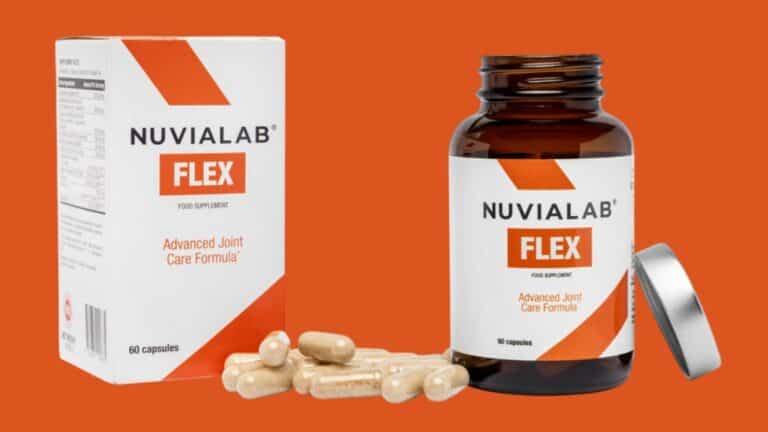With the rise in obesity and the significant impact it has on public health, injectable weight loss medications like Mounjaro, Ozempic, Wegovy, and Zepbound have emerged as options that promise substantial weight reduction. For those dealing with weight-related health issues such as diabetes, high blood pressure, or high cholesterol, these medications can be life-changing. However, understanding the nuances among these options is crucial for making informed health decisions. Here, we’ll explore the mechanisms, benefits, side effects, and considerations for each of these drugs to help you choose the most suitable option for your health goals.
How Do These Injectable Medications Work?
These medications share a common foundation: they act on hormone pathways that regulate appetite, blood sugar levels, and feelings of fullness. Specifically, most of them function as GLP-1 receptor agonists, meaning they mimic a hormone called glucagon-like peptide-1 (GLP-1). This hormone helps manage blood sugar and sends signals to your brain that you’re full, effectively reducing hunger and food intake.
Mounjaro and Zepbound, however, go a step further. They contain tirzepatide, which not only acts as a GLP-1 agonist but also targets another hormone pathway through a GIP receptor (glucose-dependent insulinotropic polypeptide). This dual-action can amplify the effects on blood sugar and hunger management, potentially leading to more effective weight loss.
In contrast, Ozempic and Wegovy contain semaglutide, which acts solely as a GLP-1 agonist. While both pathways ultimately aim to reduce hunger, the dual mechanism in tirzepatide could make Mounjaro and Zepbound more effective for some individuals.
Key Differences in Usage and Approval
These medications are approved for specific conditions, and their uses overlap but vary slightly:
- Ozempic (semaglutide): Primarily prescribed for managing type 2 diabetes and reducing cardiovascular risks in diabetic patients, Ozempic is also used off-label for weight loss.
- Wegovy (semaglutide): While it contains the same active ingredient as Ozempic, Wegovy is specifically approved for weight management in adults and teens (12 years and older) with obesity or weight-related health conditions.
- Mounjaro (tirzepatide): Approved mainly for type 2 diabetes, Mounjaro is increasingly used for weight management due to its notable effects on body weight.
- Zepbound (tirzepatide): Approved for adults with obesity (BMI of 30 or above) or those who are overweight with related health conditions. Zepbound focuses on weight management rather than diabetes.
Each medication has been approved for adults, though Wegovy is also an option for teens aged 12 and older. Mounjaro and Zepbound are based on the same active ingredient, with Mounjaro primarily marketed for diabetes and Zepbound for weight management.
Dosage and Administration Differences
All four medications are administered through weekly injections, but the dosage and progression vary:
- Wegovy and Ozempic require an initial low dose, gradually increasing to reach the target dose. Wegovy’s dosing tends to be higher than Ozempic, which may contribute to more significant weight loss but also more potential side effects.
- Mounjaro and Zepbound also start at a low dose, but you can gradually increase up to 15 mg weekly, depending on how the body tolerates it and how effective the medication is for weight management or blood sugar control.
Consulting with a healthcare provider for personalized dosing is essential, as individual responses and tolerances can vary significantly. Proper guidance is crucial for achieving effective results while managing potential side effects.
Benefits and Efficacy in Weight Loss
The rise of injectable medications like Mounjaro, Ozempic, Wegovy, and Zepbound has introduced a new wave of hope for effective weight loss and diabetes management. These medications have shown promising results, with clinical studies indicating their potential for substantial weight reduction in individuals with obesity or weight-related health conditions. However, each medication offers unique benefits and levels of efficacy, driven by their mechanisms and approved uses.
Wegovy and Ozempic: Effective Weight Loss for Different Needs
Wegovy and Ozempic both contain the active ingredient semaglutide, a GLP-1 receptor agonist that helps manage hunger and blood sugar levels. While they share this core component, they are approved for slightly different purposes and dosages. Wegovy is designed specifically for weight management and is available for both adults and teenagers (ages 12 and up) who meet certain weight or BMI criteria. Clinical trials have shown that users of Wegovy can experience weight loss of up to 15-20% of their initial body weight, especially when combined with a low-calorie diet and increased physical activity.
Ozempic, on the other hand, is primarily approved for type 2 diabetes management, although it is often used off-label for weight loss due to its similar composition to Wegovy. Because Ozempic is typically prescribed at a lower dose, weight loss results may be slightly less pronounced than with Wegovy. However, individuals using Ozempic may still see significant weight reductions, especially when paired with lifestyle changes. The use of semaglutide, which mimics natural hormones to reduce hunger, can make it easier for patients to stick to a calorie-restricted diet and avoid overeating, making both Ozempic and Wegovy valuable tools in long-term weight management strategies.
Mounjaro and Zepbound: Enhanced Weight Loss with Dual Hormone Action
Mounjaro and Zepbound set themselves apart through their active ingredient, tirzepatide, which combines the effects of a GLP-1 receptor agonist with a GIP receptor agonist. This dual-action mechanism targets two hormone pathways that regulate appetite and blood sugar, potentially leading to more profound weight loss results. Clinical studies have suggested that this combination may result in higher weight loss percentages compared to single-hormone GLP-1 agonists like semaglutide.
In a notable clinical study, Mounjaro at a 15 mg weekly dose led participants to lose more than 20% of their initial body weight on average. This makes Mounjaro and Zepbound particularly appealing for individuals who may require more substantial weight reduction due to health conditions like type 2 diabetes, high blood pressure, or heart disease. Zepbound is specifically approved for weight management in adults with a BMI over 30 or those with a BMI above 27 and other health complications, offering targeted relief for those struggling with weight-related health issues.
What Makes These Drugs Effective for Weight Loss?
The effectiveness of these drugs in promoting weight loss stems from their impact on appetite and digestion. Both semaglutide (in Wegovy and Ozempic) and tirzepatide (in Mounjaro and Zepbound) work by slowing gastric emptying, which means food stays in the stomach longer, helping users feel full for extended periods. This delay in digestion decreases the urge to eat more frequently, helping individuals reduce their calorie intake without feeling deprived.
Additionally, these drugs send signals to the brain that enhance feelings of fullness, making it easier for patients to adhere to a calorie-restricted diet. The difference in effectiveness between single-action (semaglutide) and dual-action (tirzepatide) mechanisms could explain why tirzepatide tends to yield slightly higher weight loss percentages. With the body responding to two types of hormonal signals instead of one, individuals may experience stronger appetite suppression and, consequently, better weight control outcomes.
Efficacy and Long-Term Weight Maintenance
While initial weight loss with these medications is impressive, long-term success often requires ongoing treatment. Studies have shown that discontinuing these injectables can lead to weight regain, suggesting that they may need to be part of a long-term weight management plan. Although they are highly effective, the cost of maintaining these treatments without insurance can be prohibitive, so it’s crucial for patients to weigh their financial and health goals before committing to long-term use.
In summary, the combination of appetite suppression, delayed gastric emptying, and targeted hormonal action makes Mounjaro, Ozempic, Wegovy, and Zepbound effective tools for weight loss. Each drug has distinct advantages depending on the user’s health profile, treatment goals, and dosage needs, allowing patients and healthcare providers to tailor their weight management strategy for optimal results. These medications, particularly when combined with lifestyle changes, can support meaningful and sustained weight loss, offering new options for those struggling with obesity and related health risks.
Potential Side Effects and Considerations
As with most medications, these injectables come with a range of potential side effects, which should be carefully weighed against their benefits:
- Common side effects: Across all four medications, side effects like nausea, vomiting, diarrhea, constipation, and abdominal pain are frequent. Dizziness, fatigue, and indigestion are also common with Wegovy and Zepbound.
- Serious considerations: Some individuals may experience injection site reactions, hypersensitivity, or hair loss (notably with Zepbound). Rare but serious risks include pancreatitis, so individuals with a history of this condition should consult their healthcare provider before starting these treatments.
These medications are generally safe, but long-term effects are still being researched. Given that these are newer medications, we don’t yet have a complete picture of their impact over many years. Monitoring and medical guidance are essential to managing any adverse effects and making sure that the medication continues to align with personal health goals.
Financial Costs and Insurance Coverage
One critical consideration with these medications is the cost. Without insurance, the monthly cost for each medication averages around $1,000, which can make them inaccessible for some people. Insurance coverage can vary, especially when medications are used off-label (e.g., using Ozempic for weight loss rather than diabetes management).
Those with diabetes may find Ozempic and Mounjaro easier to cover under insurance, while Wegovy and Zepbound may be covered for weight management in those who meet the BMI or health condition criteria. Speaking with a healthcare provider and insurance representative can provide clarity on available options and costs. Some pharmaceutical companies may also offer patient assistance programs to reduce out-of-pocket expenses.
Making an Informed Decision: What to Discuss with Your Doctor
Given the cost, side effects, and specific applications of each drug, it’s vital to have an open and thorough discussion with a healthcare provider. Here are some points to consider:
- Personal Health Goals: Consider the primary reasons for choosing medication – whether for diabetes control, heart health, or significant weight loss.
- Side Effect Tolerance: Everyone reacts differently, so understanding potential side effects and how they might impact daily life can help in making the best choice.
- Cost and Coverage: If insurance is a factor, work with both your healthcare provider and insurance representative to find a feasible solution.
- Lifestyle Adjustments: While these medications can aid in weight loss, lifestyle changes such as diet and exercise play an essential role in long-term success and health improvement.
The Future of Weight Loss and Diabetes Management with Injectables
Injectable medications like Mounjaro, Ozempic, Wegovy, and Zepbound represent a new frontier in managing obesity and diabetes. They offer effective weight loss solutions that go beyond what traditional diet and exercise can achieve alone. However, these are not magic solutions and require commitment, lifestyle adjustments, and careful monitoring.
Each medication has unique advantages, and the right choice depends on individual health conditions, treatment goals, and tolerance. For many, these drugs provide a tool to not only achieve weight loss but also reduce the risks of serious health issues associated with obesity and diabetes. As research continues, these medications may evolve, bringing even more effective options to those seeking to improve their health and quality of life.
Frequently Asked Questions (FAQs) about Mounjaro, Ozempic, Wegovy, and Zepbound
1. What are Mounjaro, Ozempic, Wegovy, and Zepbound, and how do they help with weight loss?
These are injectable medications used primarily for weight loss and diabetes management. They work by mimicking hormones that regulate hunger and fullness, helping to reduce appetite and prolong feelings of satiety. Mounjaro and Zepbound use tirzepatide, which acts on two hormonal pathways, while Ozempic and Wegovy use semaglutide, which affects one pathway. This can lead to significant weight loss when combined with a reduced-calorie diet and exercise.
2. How do these medications differ from each other?
- Mounjaro and Zepbound contain tirzepatide, which acts on both GLP-1 and GIP receptors, potentially providing a stronger appetite-suppressing effect.
- Ozempic and Wegovy contain semaglutide, acting solely on GLP-1 receptors. Wegovy is specifically approved for weight loss, while Ozempic is primarily for type 2 diabetes but is sometimes used off-label for weight management.
These drugs differ in their approved uses, dosages, and side effects, making some better suited to weight management and others to diabetes treatment.
3. Who is eligible to use these medications?
Eligibility depends on each medication’s specific approval:
- Ozempic: Approved for adults with type 2 diabetes and sometimes prescribed off-label for weight loss.
- Wegovy: Approved for weight management in adults and teens (ages 12+) with obesity or related health conditions.
- Mounjaro: Approved for type 2 diabetes but commonly used for weight loss as well.
- Zepbound: Approved for weight loss in adults with a BMI of 30 or more, or 27+ with weight-related conditions.
A healthcare provider can assess whether one of these drugs might suit your health profile and goals.
4. What kind of weight loss results can I expect?
Results vary, but clinical studies show:
- Wegovy: Weight loss of up to 15-20% of body weight for most users.
- Ozempic: Effective for weight loss, though generally less pronounced than Wegovy due to the lower dose.
- Mounjaro and Zepbound: Potentially higher weight loss, with many users losing over 20% of their body weight, thanks to tirzepatide’s dual action.
Individual results depend on factors such as diet, exercise, and adherence to the prescribed dose.
5. What are the most common side effects?
Side effects can vary, but common ones across all four medications include:
- Gastrointestinal issues: Nausea, diarrhea, constipation, and vomiting.
- Other symptoms: Fatigue, dizziness, bloating, and injection site reactions.
Mounjaro and Zepbound may also lead to specific issues like hair loss and hypersensitivity in some individuals. It’s crucial to monitor for side effects and discuss them with a healthcare provider, who may adjust the dose if necessary.
6. Are these medications safe to use long-term?
Studies suggest these medications are generally safe for long-term use, but ongoing research is essential for understanding their full effects over time. Long-term use often requires careful monitoring to manage potential side effects and to adjust dosage as needed. Discontinuing use can lead to weight regain, so these drugs may need to be part of a comprehensive, long-term weight management plan.
7. How much do these medications cost, and are they covered by insurance?
Without insurance, each medication can cost approximately $1,000 per month. Insurance coverage depends on the specific medication, the prescribed use (e.g., diabetes vs. weight loss), and individual insurance plans. Typically, Ozempic and Mounjaro are more readily covered for diabetes management, while Wegovy and Zepbound might be covered for weight loss if BMI and health condition requirements are met. Speaking with an insurance representative and healthcare provider can clarify out-of-pocket costs and coverage options.
8. How are these medications administered, and do they require specific dosing?
All four medications are administered via weekly injections, typically in the abdomen, thigh, or upper arm. Each has a starting dose that gradually increases:
- Wegovy and Ozempic: Gradually increase over several weeks to reach the target dose.
- Mounjaro and Zepbound: Start with a low dose, with potential to increase up to 15 mg per week, depending on effectiveness and tolerance.
It’s essential to follow the dosing schedule provided by a healthcare provider to minimize side effects and optimize results.
9. Can I stop taking these medications if I reach my goal weight?
Many people regain weight after stopping these medications, as they are designed to assist with ongoing appetite regulation. For sustained results, these medications may need to be part of a long-term management plan. However, some users may successfully transition off medication with strong lifestyle habits in place. A healthcare provider can advise on the best approach based on individual health goals and progress.
10. How soon can I expect to see weight loss results?
Weight loss results can often be observed within a few weeks, with most individuals noticing more significant results within a few months. Wegovy may lead to faster results due to its higher dosage, while Ozempic might show more gradual progress. Mounjaro and Zepbound, due to their dual mechanism, may offer more rapid and extensive weight reduction, especially at higher doses.
Consulting with your healthcare provider and tracking your progress can help set realistic expectations and keep you motivated throughout your weight loss journey.
References
- Eli Lilly. (2023, November). Zepbound (tirzepatide) prescribing information. Indianapolis, IN. Retrieved November 9, 2023, from https://www.accessdata.fda.gov/drugsatfda_docs/label/2023/217806s000lbl.pdf
- Drugs.com. (2022, October 25). Lilly receives U.S. FDA fast track designation for tirzepatide for the treatment of adults with obesity, or overweight with weight-related comorbidities. Retrieved from https://www.drugs.com/clinical_trials/lilly-receives-u-s-fda-fast-track-designation-tirzepatide-adults-obesity-overweight-weight-related-20439.html
- Eli Lilly. (2022, May). Mounjaro (tirzepatide) prescribing information. Indianapolis, IN. Retrieved October 25, 2022, from https://uspl.lilly.com/mounjaro/mounjaro.html#pi
- Eli Lilly and Co. (2022, October 25). New analyses of Mounjaro (tirzepatide) injection for the treatment of adults with type 2 diabetes presented at the American Diabetes Association’s 82nd Scientific Sessions [Press release]. Retrieved from https://investor.lilly.com/news-releases/news-release-details/new-analyses-mounjarotm-tirzepatide-injection-treatment-adults
- Drugs.com. (2022, June 6). New weight-loss drug looks good in trial. Retrieved October 25, 2022, from https://www.drugs.com/news/new-weight-loss-looks-good-trial-105811.html
- Drugs.com. (2022, June 7). ADA: Once-weekly tirzepatide yields lasting weight loss in obesity. Retrieved from https://www.drugs.com/news/ada-once-weekly-tirzepatide-yields-lasting-weight-loss-obesity-105844.html
- Novo Nordisk. (2022, October). Ozempic (semaglutide) prescribing information. Plainsboro, NJ. Retrieved October 25, 2022, from https://www.novo-pi.com/ozempic.pdf
- Novo Nordisk. (2021, June). Wegovy (semaglutide) prescribing information. Plainsboro, NJ. Retrieved October 25, 2022, from https://www.accessdata.fda.gov/drugsatfda_docs/label/2022/215256s003lbl.pdf
- Drugs.com. (2023, January 17). FDA approves once-weekly Wegovy injection for the treatment of obesity in teens aged 12 years and older. Retrieved from https://www.drugs.com/newdrugs/fda-approves-once-weekly-wegovy-obesity-teens-aged-12-years-older-5949.html
- Mayo Clinic. (2023, September 28). Intestinal obstruction. Retrieved from https://www.mayoclinic.org/diseases-conditions/intestinal-obstruction/symptoms-causes/syc-20351460
- Drugs.com. (2023, September 28). FDA adds warning to Ozempic label about risk for blocked intestines. Retrieved from https://www.drugs.com/news/fda-adds-warning-ozempic-label-risk-blocked-intestines-115225.html
- American Society of Anesthesiologists. (2023, June 28). Patients taking popular medications for diabetes and weight loss should stop before elective surgery, ASA suggests. Retrieved September 19, 2024, from https://www.asahq.org/about-asa/newsroom/news-releases/2023/06/patients-taking-popular-medications-for-diabetes-and-weight-loss-should-stop-before-elective-surgery
- National Center for Biotechnology Information. (n.d.). Tirzepatide. Retrieved from https://www.ncbi.nlm.nih.gov/books/NBK544016/
- Novo Nordisk. (n.d.). Ozempic (semaglutide) prescribing information. Retrieved from https://www.novo-pi.com/ozempic.pdf#guide
- Novo Nordisk. (n.d.). How Ozempic works. Retrieved from https://www.ozempic.com/why-ozempic/how-ozempic-works.html
- Eli Lilly. (n.d.). Mounjaro (tirzepatide) prescribing information. Retrieved from https://uspl.lilly.com/mounjaro/mounjaro.html#mg
- Novo Nordisk. (n.d.). Wegovy (semaglutide) prescribing information. Retrieved from https://www.novo-pi.com/wegovy.pdf#guide







